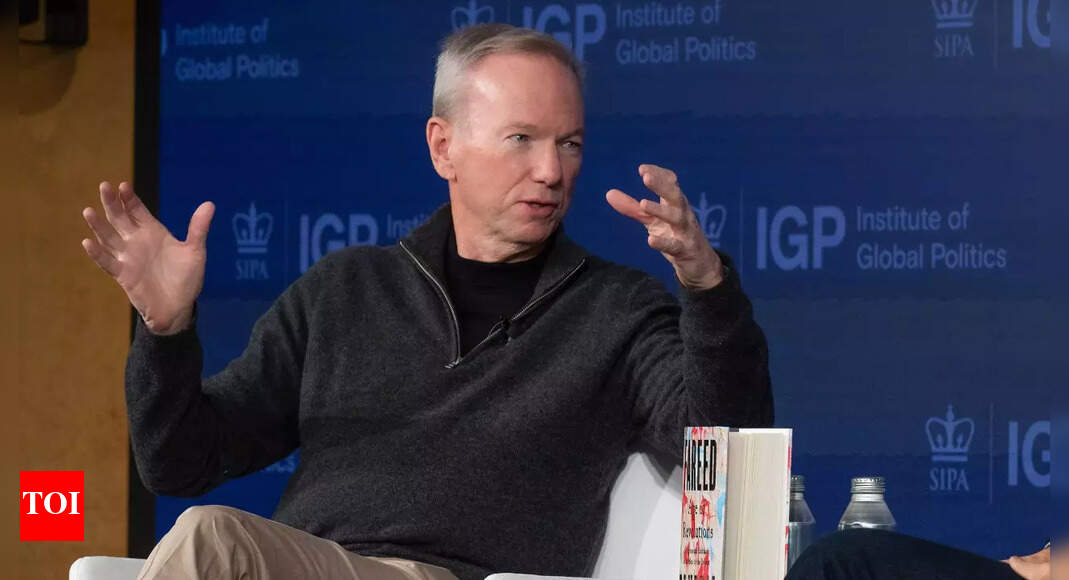 Google’s former CEO Eric Schmidt has warned that Chinese open-source AI models could dominate globally, creating what he calls one of his “biggest fears” for the future of artificial intelligence. Speaking on the Moonshots podcast released this week, Schmidt said he worries that most countries might end up using Chinese AI models simply because they are free, while U.S. models remain closed and costly.“This produces a bizarre outcome where the biggest models in the United States are closed source and the biggest models in China are open-source,” Schmidt said. “The geopolitical issue there, of course, is that open source is free and the closed source models are not free.”According to Schmidt, this economic gap could have major global implications. “So the vast majority of governments and countries who don’t have the kind of money that the West does will end up standardizing on Chinese models not because they’re better, but because they’re free,” he added.Open-source AI models allow anyone to access, modify, and share the technology, while closed-source systems are proprietary and often more secure but less accessible. The rise of Chinese AI systems like DeepSeek and Alibaba’s Qwen3 this year has already raised concerns around data privacy, national security, and America’s competitive edge in AI.Schmidt said the open vs. closed-source divide could become a geopolitical fault line in the global AI race.
Google’s former CEO Eric Schmidt has warned that Chinese open-source AI models could dominate globally, creating what he calls one of his “biggest fears” for the future of artificial intelligence. Speaking on the Moonshots podcast released this week, Schmidt said he worries that most countries might end up using Chinese AI models simply because they are free, while U.S. models remain closed and costly.“This produces a bizarre outcome where the biggest models in the United States are closed source and the biggest models in China are open-source,” Schmidt said. “The geopolitical issue there, of course, is that open source is free and the closed source models are not free.”According to Schmidt, this economic gap could have major global implications. “So the vast majority of governments and countries who don’t have the kind of money that the West does will end up standardizing on Chinese models not because they’re better, but because they’re free,” he added.Open-source AI models allow anyone to access, modify, and share the technology, while closed-source systems are proprietary and often more secure but less accessible. The rise of Chinese AI systems like DeepSeek and Alibaba’s Qwen3 this year has already raised concerns around data privacy, national security, and America’s competitive edge in AI.Schmidt said the open vs. closed-source divide could become a geopolitical fault line in the global AI race.
Debate over Sovereign AI escalates
The growing debate over “sovereign AI” — a country’s control over its AI technologies, data, and infrastructure — has intensified, with tech leaders like Nvidia CEO Jensen Huang and Mistral CEO Arthur Mensch urging nations to develop independent systems.Earlier this year, Huang told officials at the World Governments Summit in Dubai that countries must build their own large language models to preserve cultural and technological independence. Mensch compared AI to electricity in the early 1900s, warning that nations that fail to establish their own AI systems could become dependent on others — a scenario Schmidt now fears may soon be shaped by China’s growing open-source advantage.

